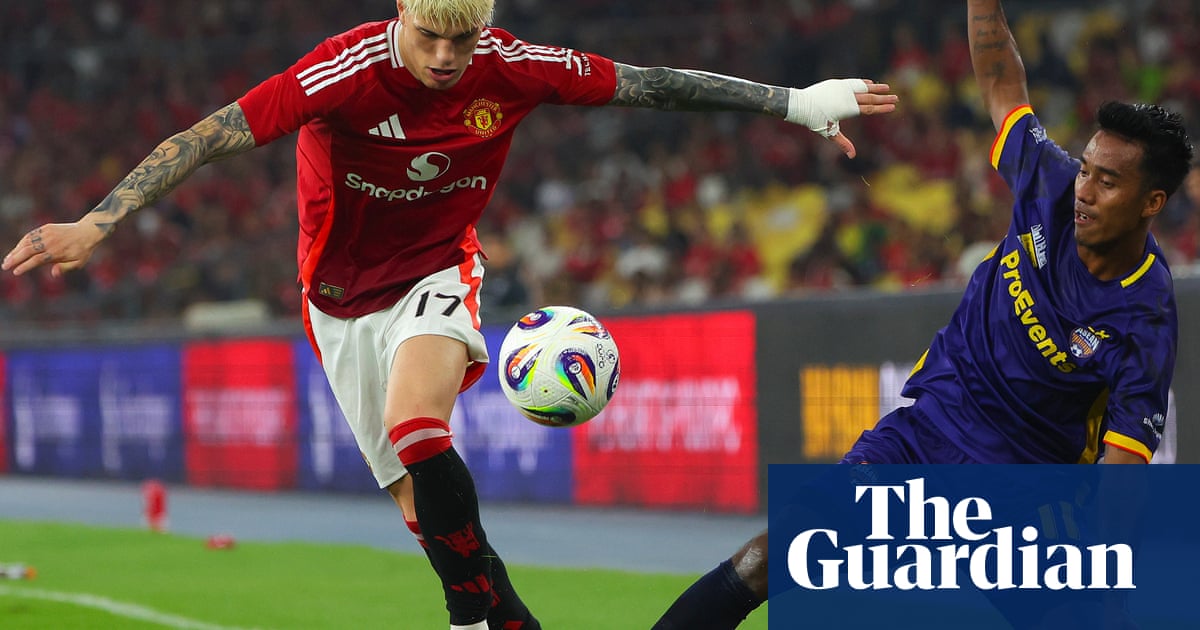Maheta Molango, the chief executive of the Professional Footballers’ Association, has voiced concern over post-season tours given the added workload they put on players immediately after a packed campaign. Manchester United’s controversy-ridden trip to Malaysia and Hong Kong is the latest example in a trend some fear is damaging athletes’ health.
“We’re all mindful and understand some of the financial dynamics the club goes through, but the reality is that quite a few players have expressed concern,” Molango said. “We have expressed concern about these post-season tours.”
United’s tour descended into farce when they were booed by the crowd afterlosing to an Asean All Stars side in Kuala Lumpur. The forward Amad Diallo drew icriticism for raising his middle finger to fans outside the team hotel after that embarrassment,explaining later that he was responding to insults aimed at his mother. United expect to generate around £10m from the excursion.
Molango also questioned pre-season tours that pit traditional rivals against one another when players are still building fitness.Arsenaland Tottenham will meet in Hong Kong next month, the first north London derby to take place outside the UK. “You cannot just turn up at the derby with flip-flops,” he said. “Sometimes there’s this misunderstanding that, yes, [pre-season] is about resting but then having a proper ability to build up to that level of intensity and that level of game.”
No solution to the discussion about fthe bloated schedule is in sight, although progress is being made with a formal complaint tabled by European Leagues, La Liga and the global players’ union, Fifpro, last October against Fifa’s imposition of the match calendar. While Fifa is understood to have begun engaging with the complainants, who have accused world football’s governing body of“abusive and anti-competitive” actsin imposing events like the expanded Club World Cup that starts on 15 June, there is scant prospect of a quick agreement.
Sign up toFootball Daily
Kick off your evenings with the Guardian's take on the world of football
after newsletter promotion
There are clear concerns that domestic competitions rather than money-spinning international events will feel the pain if cuts are made to the calendar and Molango repeated previous assertions that any solution must be applied broadly. “I’m not just talking about Manchester United, I’m talking in general about the situation,” he said. “This once again confirms the need of taking a holistic approach to the problem because you aren’t going to solve it if you just attack one specific competition.”
